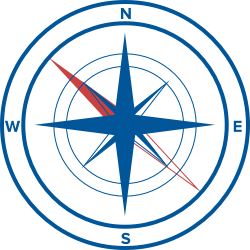I-Corps Teams program overview
The Innovation Corps (I-CorpsTM) Teams program is at the heart of the U.S. National Science Foundation's mission to develop and nurture a national innovation network. The I-Corps Teams program supports researchers interested in entrepreneurial education and mentoring, with the goal of reducing the time it takes to bring technologies from the laboratory to the marketplace.
I-Corps provides real-world, immersive instruction that allows scientists and engineers to evaluate a technology’s commercial opportunity, a critical first step toward successful translation into products, processes and services that benefit society.
To apply to the program, start by forming a team. Each team consists of three to five members and includes a technical lead, an entrepreneurial lead and an industry mentor.
Each team must first submit an executive summary through the application portal. The executive summary must include information about each team member, the proposed technology and the commercial application. Next, the team is invited to an interview with I-Corps staff. A subset of teams is then selected to participate in the National I-Corps training program and submit an I-Corps Teams proposal.
Approximately 24 teams participate in the I-Corps Teams program together as a cohort. I-Corps is taught by instructors from the National Innovation Network, a tightly connected organization of university-based Hubs, Nodes, and Sites across the U.S. that implement the I-Corps program.
Benefits of I-Corps participation
The I-Corps curriculum is not about how to write a research paper, business plan or NSF proposal. The result is not a publication or a presentation of slides. Instead, I-Corps participants receive direct, hands-on experience in customer discovery — a key step in the entrepreneurial process that involves talking to potential customers, partners and other industry stakeholders. The interview results allow the team to evaluate the commercial potential of their innovation for translation into a successful product and/or service.
Since the launch of the I-Corps program, participants have formed more than 1,000 startups that have raised over $760 million in funding. Participants who have completed I-Corps have engaged in the follow opportunities, including:
- Launching a startup: Raising private capital or applying for federal grants including America's Seed Fund powered by NSF, also known as the Small Business Innovation Research and Small Business Technology Transfer (SBIR/STTR) programs to further develop and test their research and product concepts and validate their business model.
- Conducting more use-driven research: Further refining their idea to make it market ready or to develop a new technology to fill a market need.
- Pursuing licensing or knowledge transfers: Working with a university’s technology transfer office, licensing their technology to an existing business to bring the product or idea to the marketplace.
Eligibility
There are two pathways for eligibility to the National I-Corps program:
Prior NSF research award
Researchers who have a relevant and related research award from NSF that has been active within the past five years in any area of science or engineering are invited to apply to the National I-Corps program.
Regional I-Corps training
Researchers who have not received a research award from NSF may earn eligibility to the national I-Corps program by first participating in a regional I-Corps program and receiving a letter of recommendation to the national program.



